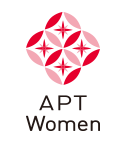Program Participants

Beautiful Smile Co.,Ltd.Mitsuki Bun
Tell us about, ”Loss Zero” of Beatiful Smile
Beautiful Smile are promoting the “Loss Zero” project with an aim to reduce food waste, which is one of the most serious social issues in Japan. Specifically, we receive contributions of off-specification food products and overproduced products from our partner food manufacturers, and sell those products to our individual and corporate customers at discounted prices.
Japan has very strict standards for food inspection and expiration dates, which results in the disposal of food that is still tasty and good enough to eat. While some food manufacturers sell off-specification products at bargain prices, other companies are hesitant to sell such products themselves due to the fear of degrading their brand image and price collapses. The Loss Zero project collaborates with such companies as partners and promotes social branding activities, which improve the social value of their brands, instead of degrading them.
So far, we have distributed branded chocolates and confectioneries reprocessed from the beans for the setsubun festival as social e-commerce products. Moreover, we try to make our project itself into an awareness activity to raise awareness for food waste by holding events where families can bring food waste from their home and cook new dishes together.
We contribute part of the profits from sold food products to support child education in Cambodia. The project has spread widely by word of mouth of consumers, who resonated with the idea of purchasing good foods at low prices and contributing to the solution of social issues at the same time.

Tell us what made you start your own business.
My first company was a hair accessory company that I started 16 years ago. This is my second company. I started an online store because I could not find any daycare center that could accept my child. When I was working while taking care of my child, I sometimes wasted food due to time restrictions and I was feeling bad about it. Then I heard from an acquaintance who was managing a food manufacturer about industrial food waste, and I started to wonder if I could do something to reduce it by tapping into my knowledge of e-commerce.
During the seven years that I ran the hair accessary business as CSR, I collected unnecessary hair accessories in Japan and contributed or sold them in developing countries (mainly Cambodia). The profits were used to support education and employment of local people. So, I came to wish to solve education issues in developing countries and Japan’s food waste problem at the same time through business, rather than staying limited within the confines of CSR. The philosophy of both companies is deeply rooted in this idea of turning “mottainai” (feeling guilty over waste) into a smile.
Tell us about the future developments.
First of all, in order to increase the number of partner companies that provide us with food products, I would like to raise the awareness of more companies about food waste and gain their confidence that contributing food products will improve their brand image. I want to make our store into a food waste marketplace that has a similar system to the Furusato nozei tax system*1. With the inclusion of “responsible consumption and production” as one of the SDGs*2 adopted by the UN, it is expected that awareness for food waste will be further promoted in Japan into the future. We are different from the food banks*3 run by local governments and NPOs in that we employ business as a means to address the issue of food waste, which is created in the process from manufacturing to wholesaling. I hope to collaborate with food banks in the future in promoting projects and creating opportunities for awareness activities together.
*1) Furusato nozei: A system that tax payers who donate to local municipalities
can receive special tax deduction.
*2) SDGs: Acronym for Sustainable Development Goals, which were adopted at the UN Assembly in September
2015.
*3) Food banks: A system that receives contribution of food products from manufacturers and provides them
for free to the poor and the weak.


